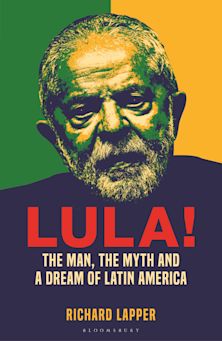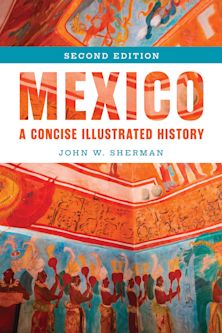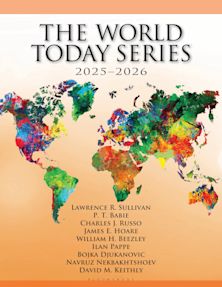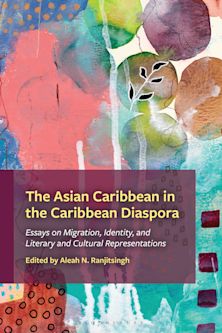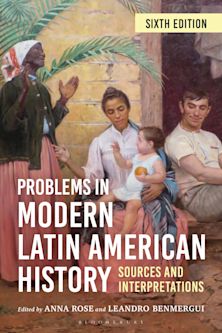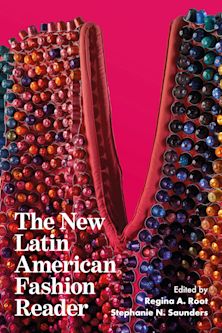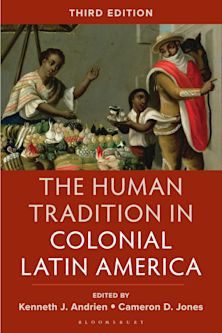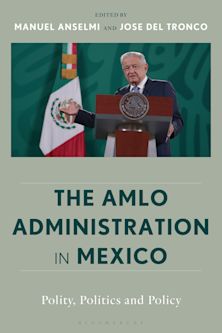Mass Migration to Modern Latin America
- Textbook
Mass Migration to Modern Latin America
- Textbook
For information on how we process your data, read our Privacy Policy
Description
It is well known that large numbers of Europeans migrated overseas during the century preceding the Great Depression of 1930, and that a great many of them went to the United States. What is not well known, particularly in the United States, is that more than 20 percent of these migrants emigrated to Latin America, and that they significantly influenced the demographic, economic, and cultural evolution of many areas in the region. Individuals have migrated to Latin America since the beginning of the Conquest more than 500 years ago, but by far the largest number, 10 million, migrated from 1870 to 1930. This incredible influx was also concentrated in terms of the origins and destinations of the individuals: three-quarters came from the Iberian peninsula and Italy, while 91 percent relocated to just three countries-Argentina (50 percent), Brazil (36 percent), and Uruguay (5 percent). Mass Migration to Modern Latin America includes original contributions from more than a dozen of the leading scholars of the new methodologically and theoretically innovative Latin American migration history that has emerged during the past 20 years. Although the authors focus primarily on the nature and impact of mass migration to Argentina and Brazil from 1870 to 1930, they place their analysis in broader historical and comparative contexts. They link the mass migrations at the turn of the past century to older migratory traditions and existing social networks, some of which had their roots in the colonial period. The editors begin each section of the book with personal stories of individual immigrants and their families, providing students with a glimpse into the complex process of migration and how it played out in various situations. This text will help readers understand that Latin America is more than a 'traditional society,' composed of the descendants of the Conquistadors and Native Americans. This book demonstrates the crucial impact of the mass migrations of the late nineteenth and early twentieth centuries on the formation of some Latin American societies.
Table of Contents
Chapter 1 Preface
Chapter 2 Introduction, Foreign Mass Migration to Latin America in the Nineteenth and Twentieth Centuries-An Overview
Chapter 4 Story One: An Italian Family in Buenos Aires and New York City
Chapter 5 Spanish Emigration to Cuba and Argentina
Chapter 6 A History of Spanish and Italian Migration to the South Atlantic Regions of the Americas
Chapter 7 Portuguese Transatlantic Migration
Chapter 8 Italian Immigrants in Buenos Aires and New York City, 1870–1914: A Comparative Analysis of Adjustment
Chapter 9 Sharing the City: Residence Patterns and Immigrant Integration in Buenos Aires and Montevideo
Chapter 10 The Japanese in Peru and Brazil: A Comparative Perspective
Part 11 Argentina, Map of Argentina
Chapter 12 Story Two: Manuel Suarez Martinez (1845–1917), a Galician Migrant to Argentina
Chapter 13 The Danes in the Argentine Pampa: The Role of Ethnic Leaders in the Creation of an Ethnic Community 1848–1930
Chapter 14 Marriage, Household, and Integration in Mass Migration to Argentina: The Case of Tandil
Chapter 15 Immigrants and Female Work in Argentina: Questioning Gender Stereotypes and Constructing Images–The Case of the Italians, 1879–1900
Part 16 Brazil, Map of Brazil
Chapter 17 Story Three: Santo Codo (1861–1942), an Italian Immigration on a Brazilian Coffee Plantation
Chapter 18 German Immigration and Brazil's Colonization Policy
Chapter 19 Jewish Immigration to Brazil
Chapter 20 Family and Immigration in the Brazilian Past
Chapter 21 Conclusion: Common Themes and Future Directions
Chapter 22 Suggested Readings
Chapter 23 About the Contributors
Product details
| Published | Jan 01 2003 |
|---|---|
| Format | Ebook (PDF) |
| Edition | 1st |
| Extent | 293 |
| ISBN | 9798216285793 |
| Imprint | Rowman & Littlefield |
| Series | Jaguar Books on Latin America |
| Publisher | Bloomsbury Publishing |












